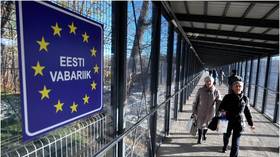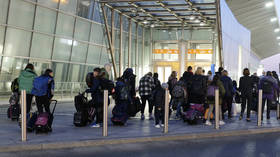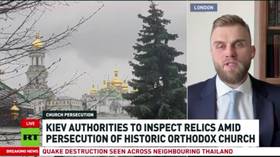EU to suspend visa deal with Russia – FT

EU foreign ministers plan to back a suspension of the 2007 EU-Russia visa facilitation deal at a two-day meeting in Prague, next week, the Financial Times reported on Sunday, citing three officials familiar with the matter.
In response to Moscow’s military operation in Ukraine, several member states have actively been lobbying for either a ban or heavy restrictions on the number of Russian citizens entering the bloc.
“It is inappropriate for Russian tourists to stroll in our cities, on our marinas,” a senior EU official told the newspaper. “We have to send a signal to the Russian population that this war is not OK, it is not acceptable.”
The suspension of the agreement would make the process of applying for all EU visas more complicated and expensive, as well as increasing waiting times.
“We are in an exceptional situation and it requires exceptional steps. We want to go beyond suspending the visa facilitation,” an EU official was quoted as saying. The official stated that additional restrictions could be adopted by the end of the year, according to the FT.
Countries such as Poland, the Czech Republic, Estonia and Latvia have already stopped issuing visas to Russian citizens. Estonian Prime Minister Kaja Kallas said this week that Russian tourists pose a security threat to the country, and that a travel ban could incentivize some Russians to “pressure” the Kremlin.
Others, including German Chancellor Olaf Scholz and the EU’s top diplomat Josep Borrell, spoke out against a full ban on Russian travelers. They argued that the bloc should not punish ordinary Russians for the actions of their government.
Moscow blasted the proposed measures as “flagrant nationalism” and xenophobia. The Kremlin also expressed hope at the time that “common sense” would eventually prevail.














